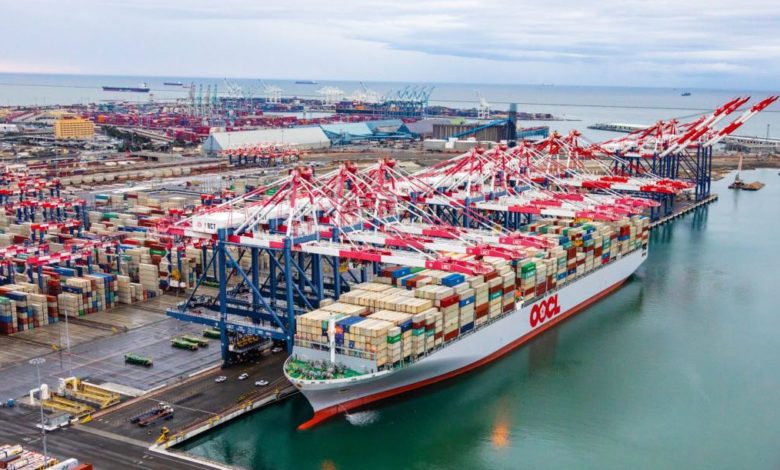New bill in Washington takes aim at China’s influence in ocean shipping

Two of the main backers of last year’s Ocean Shipping Reform Act (OSRA) in the US have come up with an updated piece of legislation which takes aim at China’s influence in the ocean shipping space.
US representatives Dusty Johnson and John Garamendi introduced the bipartisan Ocean Shipping Reform Implementation Act this week in a bid, the pair said, to crack down on the Chinese Communist Party’s attempts to influence America’s supply chain.
The bill would prohibit US ports from using China’s National Transportation Logistics Public Information Platform (LOGINK), allows the Federal Maritime Commission (FMC) to investigate foreign shipping exchanges like the Shanghai Shipping Exchange to preempt improper business practices, and authorises the FMC to streamline data standards for maritime freight logistics.
“We’ve seen the positive results of the Ocean Shipping Reform Act, but there is more to be done to stay tough on China,” said Johnson. “The Ocean Shipping Reform Implementation Act gives the FMC the authority to protect US ports, shippers, and manufacturers from the CCP’s influence. Fair trade practices benefit all parts of the supply chain from producer to manufacturer, shipper to consumer.”
Garamendi commented: “After years of endless happy talk in Washington, we are finally making free trade fair trade and stopping Chinese state-controlled companies from ripping off our country and gutting our manufacturing jobs. Our implementation bill introduced today will finish the job.”
Peter Friedman, executive director of the Agriculture Transportation Coalition, said the new bill, dubbed OSRA 2.0, addresses emerging security and market control concerns relating to non-market economies with whom American companies trade and transport.
“This legislation is essential for modernising the US freight sector and ensuring that US supply chains are resilient and secure in the face of increasing geopolitical volatility. The bill establishes a critical pathway to developing a data-sharing standard amongst freight stakeholders, delivering efficiencies that reduce emissions and enabling more effective responses to supply chain disruptions,” said Christine Weydig, executive director, Coalition for Reimagined Mobility (ReMo).
The bill would also codify the definition of controlled carrier under the Shipping Act to encompass state-controlled enterprises in non-market economies like China.
The bill would also authorise the FMC to streamline data standards for maritime freight logistics and use existing data standards or industry best practices, including contracting an expert third party to develop the new federal data standard if needed. It would also authorise the Bureau of Transportation Statistics to collect more information on port operations, such as the total of incoming and outgoing containers and yard capacity.

It is a shame that they are not looking at the other indices, given that service contracts in the US trade are all confidential, then surely by providing that information to a third party is a breach of the confidentiality outlined in the Service contract. For tariff rates they are published and freely available so spot rates are find but no way are the details of a confidential service contract rates legally released to a third party.